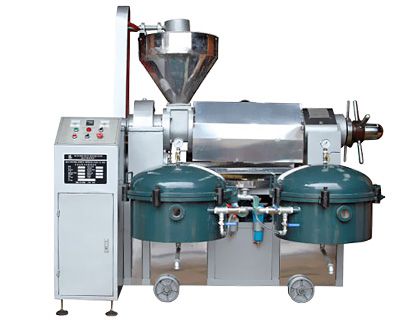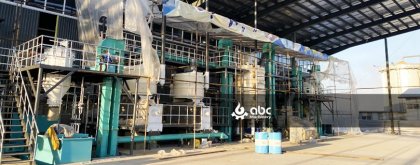What Is Solvent Extraction Method for Edible Oil Processing
The solvent extraction method of oil production is using solvents (hexane, butane, etc.) in accordance with the relevant national standards, according to the mutual solubility of oil and solvent, the contact of the solvent and the treated solid oil with the oil, the extraction and dissolution of the oil, and then the use of strict oil processing technology and equipment to remove the solvent from the oil. In conclusion, it’s an advanced, scientific oil production method.

ABC Machinery: Offer You Reliable Cooking Oil Solvent Extraction Plant
Edible oil solvent extraction method is a widely used oil extraction process at present, and is applicable to a variety of raw materials: leaching of soybean oil and rice bran oil, secondary processing of peanut oil cake, rapeseed oil cake, camellia seed oil cake and other oilseeds.
If you are intending to start a cooking oil mill business for the leaching process and want to get the desired profits, you should first have a brief understanding of oil solvent extraction process steps.
5 Steps of Edible Oil Solvent Extraction Plant Processing Process
The theoretical basis of the leaching oil production process is the solid-liquid extraction principle. The solvent extraction plant process for vegetable oil production is generally divided into five basic steps.

Edible Oil Solvent Extraction Process Flow Chart
- Step1:Pre-pressing process
For high oil content oilseeds like cottonseed, rapeseed, peanut, sunflower seeds, etc., before oil solvent extraction, the cooking oil making machine is used to extract 85% to 89% of the oil within the oilseed, and the resulting oil cake is crushed into a certain size, and then for solvent extracting to obtain leached crude oil.
- Step2: Solvent extraction process
The oilseeds is soaked or drenched in the solvent extraction plant with No.6 solvent, so that the oil is extracted and dissolved in the solvent, and by filtration a mixture of leached crude oil and solvent are obtained.
- Step3: Wet meal desolvation process
Solvent leaching process to get the wet meal containing solvent, this process is to recover the solvent in the wet meal to reduce the waste of resources.
- Step4: Miscella evaporation and steam stripping process
The mixed oil containing solvent is removed by evaporation and vapor extraction process to obtain a relatively pure extracted crude oil. And then the crude oil is sent to the edible oil refining machine for further refining and processing, and finally the edible oil is ready for sale.
- Step5: Solvent recovery process
The solvent vapor obtained from the above two steps is condensed to become liquid solvent, in which there is still water, and the water separation process is needed to remove the water and recover the solvent.

30TPD Flat Rotary Solvent Extraction Production Line 3D Diagram
Solvent Extraction Plant Equipment Used in Vegetable Oil Production
Oil process technology and oil processing machinery and equipment are complementary in the oil production process. Therefore, after fully understanding about the production process of oil solvent extraction, you also need to buy the suitable oil solvent extraction equipment to extract healthy oil, thus helping the cooking oil mill business to run smoothly.

Various Types Cooking Oil Solvent Extraction Plant for Sale
How can I buy good edible oil leaching equipment? ABC Machinery oil solvent extraction plant manufacturer are your good choice, for multipe capacity, with high quality, excellent after-sale service and low prices, and with many successful solvent oil extraction project setup in various countries(Example: 50TPD Canola Oil Processing Plant Setup in Russia>>) . Welcome to ABC Machinery for inspection and purchase, as well as free access to customized edible oil engineering solutions!
Types of Oil Solvent Extraction Plant & Equipment Selection
The smooth running of oil mill business by solvent extraction process is closely related to the oil leaching equipment selected, which directly affects many aspects of oil processing factory such as product quality, oil production costs, oil manufacturing capacity and operating conditions. (You may want to know more: how to start a mini soybean oil mill business>>)
There are many types of common oil leaching machinery, and you can choose according to your actual needs.
- Tank group solvent extraction plant: Consists of 3~8 leaching pots group, suitable for small scale oil solvent extraction processing. (Related Posts: Small/mini cotton seed solvent extraction plant>>)
- Flat rotary solvent extraction plant: The main equipment is a large cylindrical shaped flat rotary leacher, Continuous operation, stable operation.
- Ring solvent extraction plant: A kind of widely used continuous oil leaching equipment, which adopts advanced technology to make the material fully soaked and greatly improve the oil yield rate.
- Drag chain solvent extraction plant: are derivatives of ring leachers, eliminating the bending section, simplifying the structure and reducing construction costs compared to ring leachers.
Edible Oil Solvent Extraction Method VS Oil Pressing Method
The edible oil solvent extraction process and the oil pressing process are two common methods of oil production, and no one is better than the other.
When choosing which process to extract oil, the first thing to consider is the variety of oil-bearing material and its processing characteristics, and the only difference between the two methods is the suitability of the raw material.
The current international common practice is: higher-oil content of oilseeds (such as peanuts and rapeseed, etc.), usually using the first pre-pressing after the leaching process oil; lower-oil content of oilseeds (such as soybeans, etc.), usually using direct leaching process oil. In order to make full use of oil resources and improve economic efficiency, the oil cake after pressing is generally used to leach oil production.
| Oil-bearing materials | Oil content |
|---|---|
| Cottonseed | 28-39% |
| Rapeseed | 25-32% |
| Peanut/groundnut kernel | 40-51% |
| Sunflower seeds | 30% |
| Soybean | 15-26% |
| Rice bran | 18% |
Compared with the pressing process, the leaching process has the advantages of leaving less residual oil in the meal, a high oil yield, low processing costs, and good production conditions so oil resources can be fully utilized.
We receive enquiries in English, Español (Spanish), Русский язык (Russian), Français (French) and العربية (Arabic).Our professional team will reply to you within one business day.Please feel free to contact us!



 Screw Oil Press
Screw Oil Press Small Oil Mill Plant
Small Oil Mill Plant Small Oil Refinery
Small Oil Refinery Automatic Oil Press
Automatic Oil Press Multifunction Oil Press
Multifunction Oil Press Hydraulic Oil Press
Hydraulic Oil Press


![[Presidential Visit] Zimbabwe 30 Tons/Day soybean oil plant for Extraction and Refinery Was Successfully Completed](/uploads/allimg/soybean-oil-plant-press-refine-business-lp.jpg)

